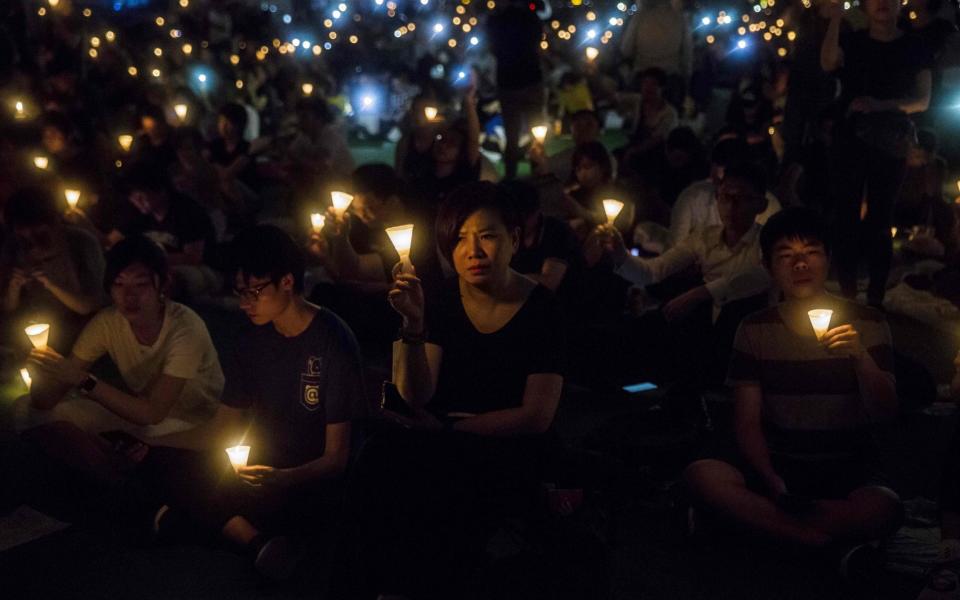Hong Kong's Tiananmen commemoration banned by police for first time in three decades

Hong Kong police on Monday banned an upcoming vigil marking the Tiananmen crackdown anniversary citing the coronavirus pandemic, the first time the gathering has been halted in three decades.
The candlelight June 4 vigil usually attracts huge crowds and is the only place on Chinese soil where such a major commemoration of the anniversary is still allowed.
Last year's gathering was especially large and came just a week before seven months of pro-democracy protests and clashes exploded onto the city's streets, sparked initially by a plan to allow extraditions to the authoritarian mainland.
But police rejected permission for this year's rally saying it would "constitute a major threat to the life and health of the general public", according to a letter of objection to organisers obtained by AFP.
Hong Kong has managed to keep the virus mostly in check, with just over 1,000 infections and four deaths. Bars, restaurants, gyms and cinemas have largely reopened in recent weeks.
In the last two days five local infections were reported, breaking nearly two weeks of zero tallies.
Organisers accused police of using the virus as an excuse to ban the rally.
"I don't see why the government finds political rallies unacceptable while it gave green lights to resumption of schools and other services ranging from catering, karaoke to swimming pools," said Lee Cheuk-yan, chairman of the Hong Kong Alliance which has organised every vigil since 1990.
The alliance called on residents to instead light a candle at 8pm on Thursday and observe one minute of silence wherever they can.
"If we are not allowed to light a candle at a rally, we will let the candles be lit across the city," Lee said.
Lee also vowed that the alliance would continue to chant the slogan "end one-party rule" during the commemoration despite Beijing's recently announced plans to impose a law criminalising acts of subversion, secession, terrorism and foreign interference.
Beijing says the law - which will bypass Hong Kong's legislature - is needed to tackle "terrorism" and "separatism".
Opponents fear it will bring mainland-style political oppression to a business hub supposedly guaranteed freedoms and autonomy for 50 years after its 1997 handover to China by Britain.
The 1989 Tiananmen crackdown occurred when China's leaders sent tanks and troops to quell student protesters calling for democracy and an end to corruption.
Hundreds were killed, with some estimates suggesting that more than 1,000 perished.
Three decades on, it remains one of the most sensitive subjects in mainland China and any mention of it is strictly censored.
But in Hong Kong the memory of what happened is kept alive.
The annual vigils swelled before the 1997 handover to China and have become especially charged in recent years as many Hong Kongers chafe under Beijing's rule.
This year's anniversary is likely to coincide with Hong Kong's pro-government stacked legislature voting for a law banning insults to China's national anthem.

 Yahoo News
Yahoo News 